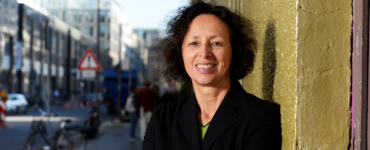In many different spheres, Digital Germany has made great strides, especially during the Corona pandemic. But where do we currently stand and what still needs to be addressed in terms of sustainable digitalisation, digital sovereignty & education or IT security? In the run-up to the 2021 German federal election, we present various Internet industry and digital policy perspectives. In the current interview: Inger Paus, Managing Director of the Vodafone Institute for Society and Communication in Germany.
Ms. Paus, in your view, how is Germany positioned as a digital location today – where do you see challenges, as well as potential for the future?
Paus: The COVID-19 pandemic has acted a digitalisation boost for Germany, and continues to do so – at least in the private sector and in private life. Whether it comes down to working in home office, video chats with the family doctor, or click-and-meet in retail – all of this was suddenly possible within a short space of time. Not least because our digital infrastructure has withstood the proliferation of data traffic. However, the pandemic also exposed the structural weaknesses in Germany’s schools, healthcare system and public administration. In terms of digitalisation, these are still far from having arrived in the 21st century. I see future potential in the green transformation of the economy. Digitalisation will play a decisive role here – be it in smart energy networks, electromobility or sustainable agriculture.
How do you assess the digital policy performance of the current German federal government?
Paus: The decisive question here is: What really resonates with voters in their everyday lives? Many see Germany as no longer even in the digital midfield in international comparison, and also don’t view the state as a digitalisation pioneer. In contrast, many companies have done their homework in terms of digitalisation – both as providers of digital infrastructures and in the digitalisation of their products and jobs. In theory, the federal government has created a good framework for this in recent years with programmes for broadband expansion, the digitalisation of schools and the modernisation of public IT. Now, however, it is finally time for implementation, which calls for a spirt of innovation, pragmatism and flexibility.
In your opinion, which digital policy topics should the next federal government place at the top of its digital agenda?
Paus: On the one hand, the digitalisation of education, health care and public administration at “warp speed” – both in terms of the deployment of IT and development of the necessary digital skills. We are threatened with a considerable locational disadvantage if the federal, state and local governments do not radically modernise their very own areas of competence. On the other hand, the realisation of the gigabit pledge through investment-promoting framework conditions – be it in the allocation of further mobile network frequencies, or lean and fast approval procedures for the expansion of fixed and mobile networks. And last but not least: a focus on “Made in Germany” future technologies at the interface between hardware and software – be it 5G, IoT and AI applications for industry, quantum computing, or green tech innovations.
Thank you very much for the interview!




